Jeff Bezos: reusable rockets will let a trillion people colonise the solar system
Apollo 11 Gala sees Amazon & Blue Origin chief present his vision of space exploration
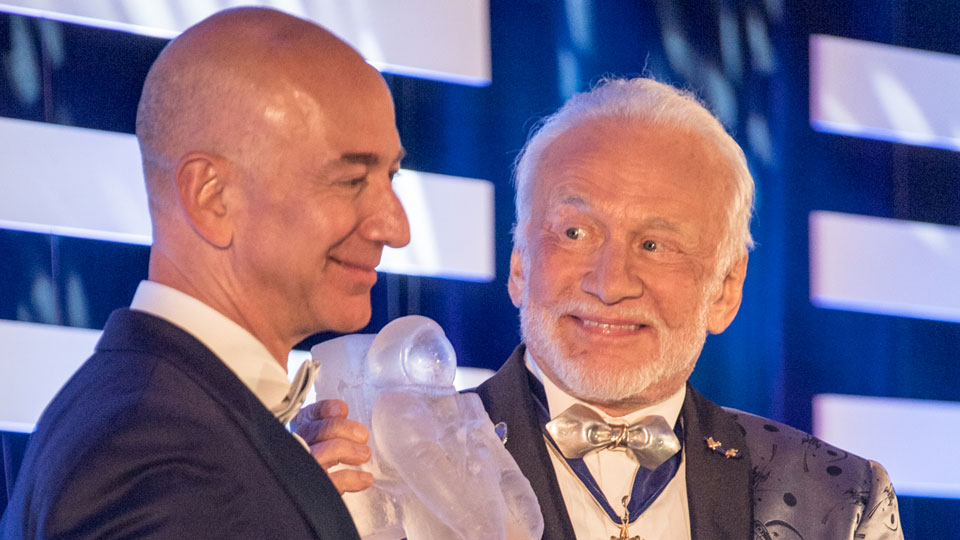
Is Amazon Prime about to go interplanetary? Founder of Amazon.com Jeff Bezos, who also owns his own private spaceship company, Blue Origin, last night outlined his own plans for human domination of the Moon and, eventually, the entire solar system.
Bezos was forthright about his plans for our natural satellite. “It’s time for America to go back to the Moon, this time to stay,” he said at the astronaut-studded annual Apollo 11 Gala at Kennedy Space Center's Apollo/Saturn V Center in Florida, after accepting the first annual Buzz Aldrin Innovation Award from Apollo 11 astronaut Aldrin’s education-focused ShareSpace Foundation.
“We should build permanent settlements on the Moon's poles where we can get water and solar power. We know things about the Moon we didn’t know back in the 1960s and 1970s, and with reusable rockets we can do it affordably,” he added. “We can get that done today.”
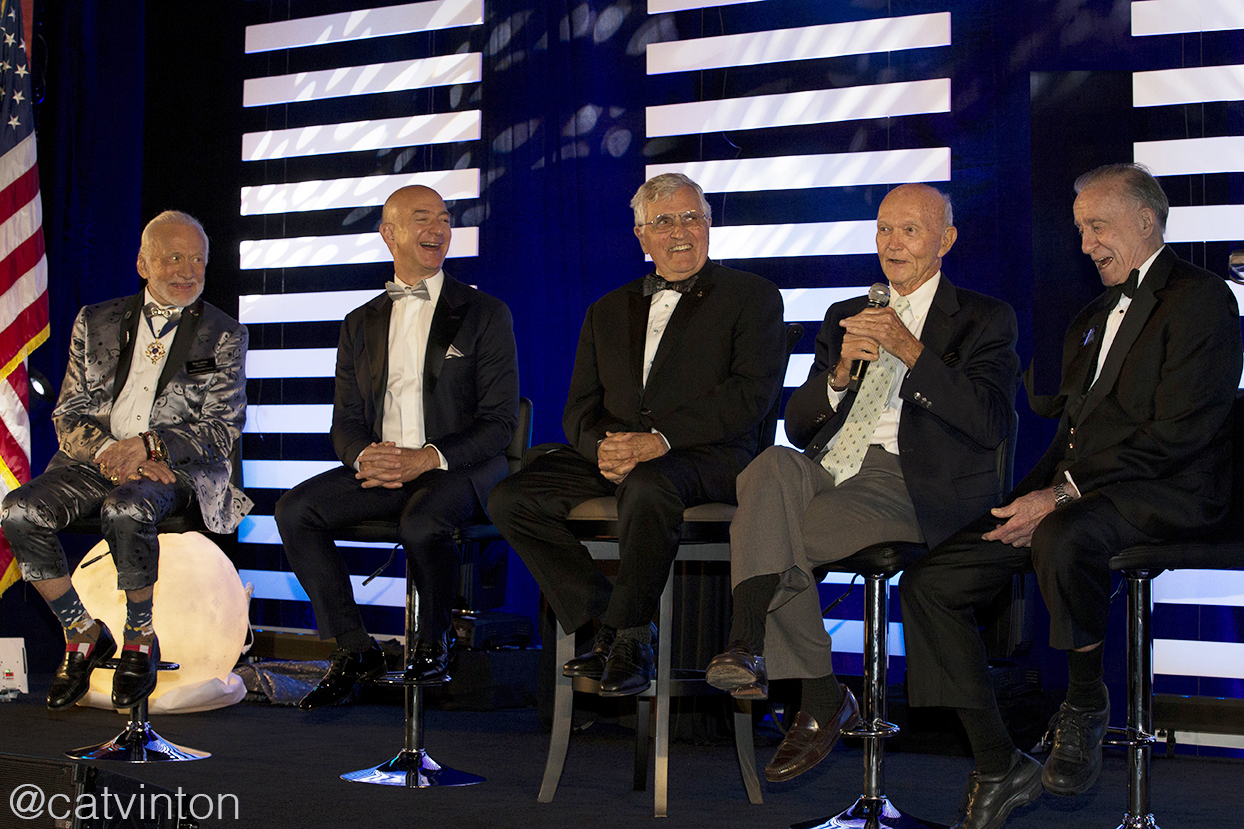
Blue Moon?
Bezos recently floated his concept of Blue Moon, which could see Blue Origin operate a cargo service to take to the Moon supplies to robotically construct a permanent human settlement. The service would use his reusable rockets, of course, and has been pitched to NASA.
“It’s been too long since we went back to the Moon,” he said, flanked by Aldrin, who piloted the lunar module on Apollo 11 and walked on the lunar surface, Apollo 11 command module pilot Michael Collins, Apollo 7’s Walter Cunningham and Apollo 17’s Harrison ‘Jack’ Schmitt (who walked on the Moon and took the famous Blue Marble photograph).
“All this history is very nice, but I guarantee you that these guys on this stage did not think that they would be the last people to be on the Moon for so many years,” said Bezos.
He was talking on a stage in front of NASA's extraordinary, 363ft long Saturn V, the enormous rocket that launched Apollo spacecraft to the Moon.
Get daily insight, inspiration and deals in your inbox
Sign up for breaking news, reviews, opinion, top tech deals, and more.
“The people I’m sharing this stage with, and the hundreds of thousands of engineers who built this giant thing above your heads, these people did us a fantastic service that is still paying us dividends today.”
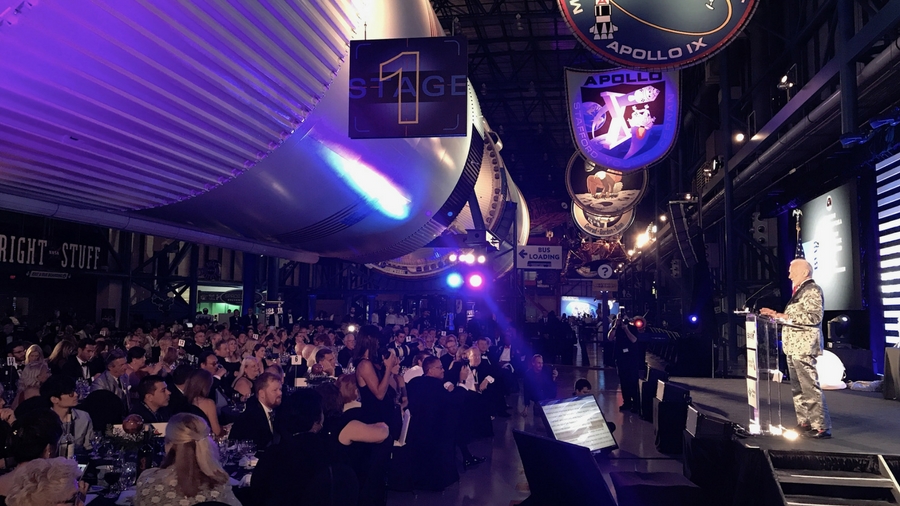
Secretive plans
Until now Bezos has been fairly secretive about his plans for Blue Origin, which has been developing and testing small reusable rockets without much fanfare.
“He’s been quietly breaking ground with his New Shepard and New Glenn rockets,” said Aldrin.
“Jeff and Blue Origin are making so many breakthroughs with their reusable rockets that they can’t do it so quietly any longer.”
Blue Origin has plans to take tourists on sub-orbital trips to the edge of space atop its New Shepard rocket. However, it’s also investing in orbital rockets, and is currently constructing a large rocket manufacturing facility in Exploration Park, Cape Canaveral, just a few miles from Kennedy Space Center. It will be used to build the reusable, but orbital New Glenn rocket, a much larger vehicle that can land back on the launch pad. New Glenn will come in two versions, one 313ft, which is due to be tested in 2020.
Elon Musk’s SpaceX, based at Kennedy Space Centre’s Pad 39A where the Apollo missions launched from, is due to test its 229ft Falcon Heavy (FH) rocket this September. It will be the most powerful operational rocket in the world, though NASA’s Mars-focused SLS, at 365ft rocket, will takeover that mantle in 2028 or so.
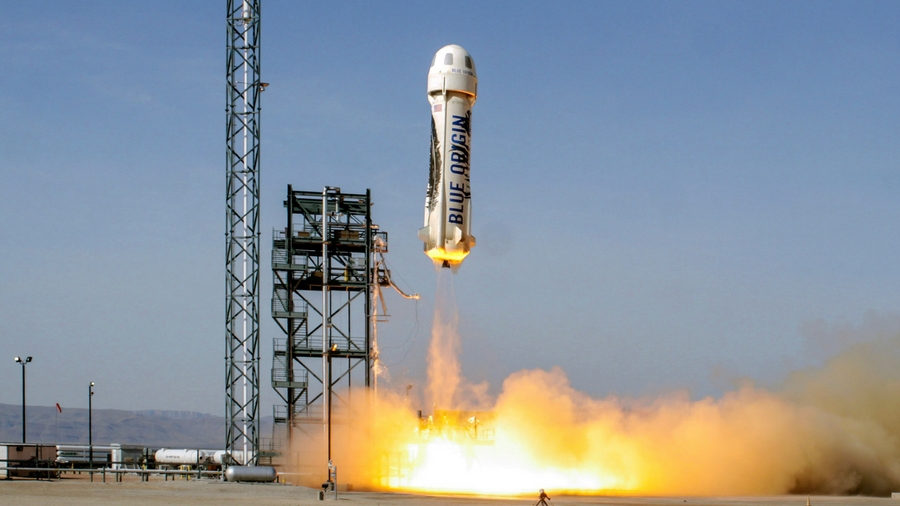
No 'Plan B'
However, Bezos rejects the common ‘Plan B’ argument in favor of human exploration; that one day the Earth is going to be destroyed, so we’d better find somewhere else to live.
“I hate that idea, and I find it very un-motivating,” said Bezos.
“We have sent robotic probes now to every planet in the solar system and, believe me, this is the best one – Earth is a gem, it’s incredible.”
He then went on to quote several Apollo astronauts about what they thought about Earth when they returned form the Moon, notably Apollo 14’s Alan Bean: ‘Since returning I have not complained about the weather one single time – I’m glad there is weather. I’ve not complained about traffic— I’m glad there are people around. Why do people complain about the Earth? We are living in the Garden of Eden.’
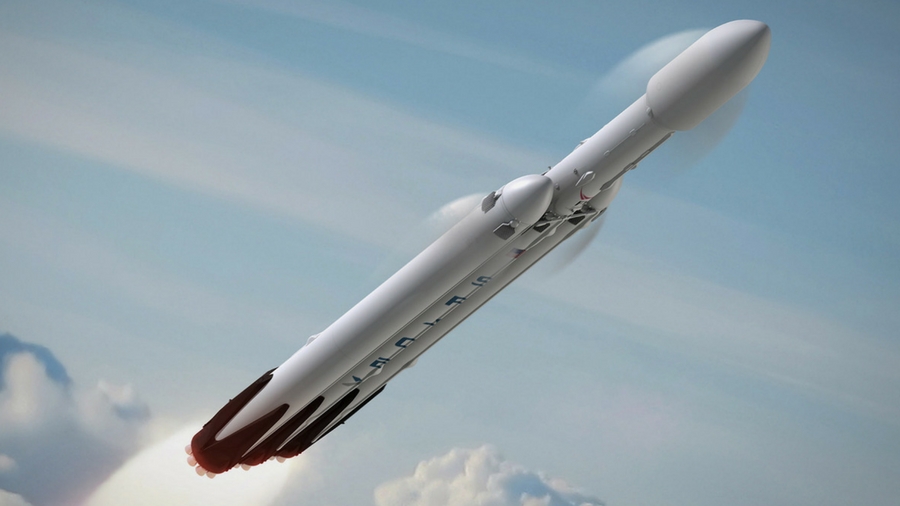
We need our space
For Bezos, colonising space is a more a simple necessity for continued life on Earth. The compound effect of the incremental increase in energy requirements will mean us having to cover every inch of Earth in solar cells, he said, while the solar system offers virtually unlimited energy resources.
“We can harvest resources from asteroids, from Near-Earth Objects, and harvest solar energy from a much broader surface area – and continue to do amazing things,” he said. The alternative, he said, was an era of stasis and stagnation on Earth, where we are forced to control population and limit energy usage per capita.
“I don’t think stasis is compatible with freedom or liberty, and I sure as hell think it’s going to be a very boring world – I want my grandchildren’s grandchildren to be in a world of pioneering, exploration and expansion throughout the solar system.”
He also suggested that exploration and colonisation of the solar system would make it possible to support one trillion people.
“Then we would have 1,000 Einstein’s and 1,000 Mozarts, how cool would that be?” he said.
“What’s holding us back from making that next step is that space travel is just too darned expensive because we throw the rockets away. We need to build reusable rockets and that’s what Blue Origin is dedicated to.”
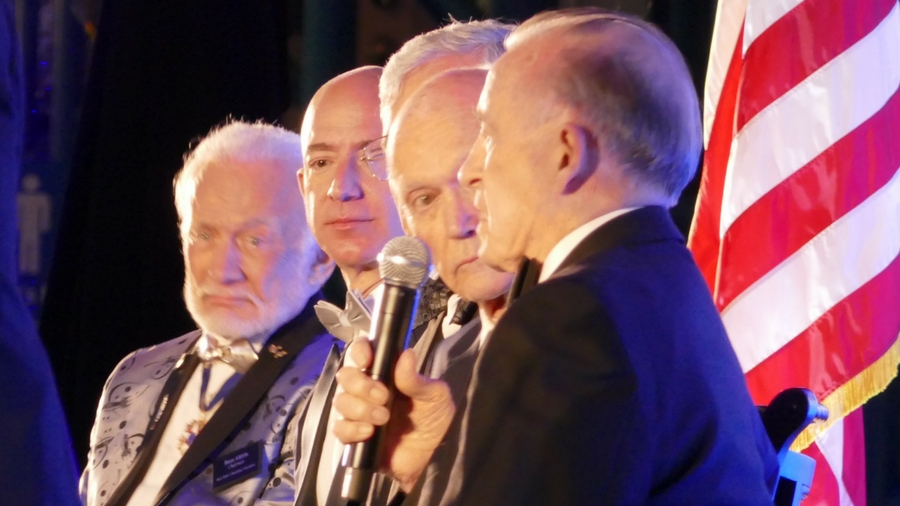
Lottery win
Bezos also talked about how he plans to use his fortune for good. “I have won this gigantic lottery and it’s called Amazon.com, and I’m using my lottery winnings to get us further into space. I think it’s important,” he added.
Aldrin’s ShareSpace Foundation raised US$192,788 on the night for its educational projects from auctions of some of his personal collection of flown-on Apollo 11 souvenirs. A First Day cover signed by all three astronauts went for US$42,500 while a sample of Kapton polymide foil from the Columbia module itself sold for US$4,500. Much of the funds will be used to create and distribute the Giant Mars Map to schools and, soon, a Giant Moon Map.
Jamie is a freelance tech, travel and space journalist based in the UK. He’s been writing regularly for Techradar since it was launched in 2008 and also writes regularly for Forbes, The Telegraph, the South China Morning Post, Sky & Telescope and the Sky At Night magazine as well as other Future titles T3, Digital Camera World, All About Space and Space.com. He also edits two of his own websites, TravGear.com and WhenIsTheNextEclipse.com that reflect his obsession with travel gear and solar eclipse travel. He is the author of A Stargazing Program For Beginners (Springer, 2015),
